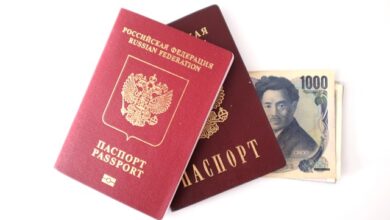How to Apply for a Family Reunification Visa in France

Family reunification is a fundamental right under French immigration law, allowing non-EU citizens who are legally residing in France to bring their close family members to join them. This process ensures that families can live together and maintain their bonds, even when relocating to a new country. If you’re considering applying for a family reunification visa, this guide will walk you through the steps, requirements, and tips to make the process as smooth as possible.
1. Understanding Family Reunification in France
Family reunification applies to spouses, children (under 18 or dependent adults), and sometimes parents of the sponsor (in specific cases). The sponsor must be a legal resident of France with stable income and housing to support their family members.
Eligibility Criteria
To qualify for family reunification:
- The sponsor must hold a valid residence permit in France (e.g., long-stay visa or carte de séjour).
- The sponsor must demonstrate sufficient financial resources to support their family without relying on social assistance.
- Adequate housing must be available to accommodate the family.
- The relationship between the sponsor and the applicant must be genuine and documented.
2. Types of Family Members Eligible for Reunification
The following family members may apply for reunification:
- Spouse: Married partners are eligible, provided the marriage is recognized by French law.
- Children: Minor children (under 18) or dependent adult children may qualify.
- Parents: In rare cases, parents of the sponsor may apply if they are financially dependent and no other family members can care for them.
Unmarried partners or distant relatives do not typically qualify unless exceptional circumstances exist.
3. Steps to Apply for a Family Reunification Visa
Step 1: Gather Required Documents
Both the sponsor and the applicant(s) must prepare extensive documentation. Below is a list of commonly required documents:
- For the Sponsor:
- Valid residence permit or proof of legal stay in France.
- Proof of stable income (e.g., pay slips, tax returns, employment contract).
- Proof of adequate housing (e.g., rental agreement, property deed).
- Certificate of integration into French society (if applicable).
- For the Applicant(s):
- Completed visa application form.
- Valid passport and copies of previous visas.
- Birth certificates, marriage certificates, or other proof of familial ties.
- Medical certificate proving good health (issued by an approved doctor).
- Police clearance certificate from the applicant’s home country.
- Proof of language proficiency (A1 level in French may be required for some applicants).
Step 2: Submit the Application
- Where to Apply: The applicant must submit their visa application at the French consulate or embassy in their home country.
- Processing Time: Processing times vary but typically range from 2 to 6 months. It’s advisable to apply well in advance of your planned travel date.
- Fees: A non-refundable fee is required when submitting the application. Fees vary depending on the type of visa and the applicant’s nationality.
Step 3: Attend an Interview
Some consulates require an interview to verify the authenticity of the relationship and assess the applicant’s intentions. Be prepared to answer questions about your family ties, plans in France, and understanding of French culture.
Step 4: Receive the Visa Decision
Once approved, the applicant will receive a long-stay visa (visa de long séjour), which allows them to enter France and apply for a residence permit (carte de séjour) upon arrival.
4. After Arrival in France
After arriving in France, the applicant must complete additional steps to formalize their status:
- Apply for a Residence Permit:
- Visit the local prefecture within two months of arrival to apply for a carte de séjour.
- Provide updated documents, including proof of address and medical insurance.
- Attend Integration Courses (If Required):
- Some applicants may need to attend French language and civics courses as part of their integration process.
- Renewal of Permits:
- Residence permits are usually valid for one year initially and can be renewed annually, provided all conditions are met.
5. Common Challenges and Tips
Challenges
- Strict Documentation Requirements: Missing or incomplete documents can delay the process significantly.
- Language Barrier: While not always mandatory, having basic French skills can improve communication and integration.
- Financial Thresholds: Proving sufficient income can be challenging for sponsors with modest earnings.
Tips for Success
- Start gathering documents early, as obtaining certified translations and apostilles can take time.
- Consult the French consulate or embassy for specific requirements, as they may vary slightly by location.
- Seek legal advice or assistance from immigration experts if you encounter difficulties.



